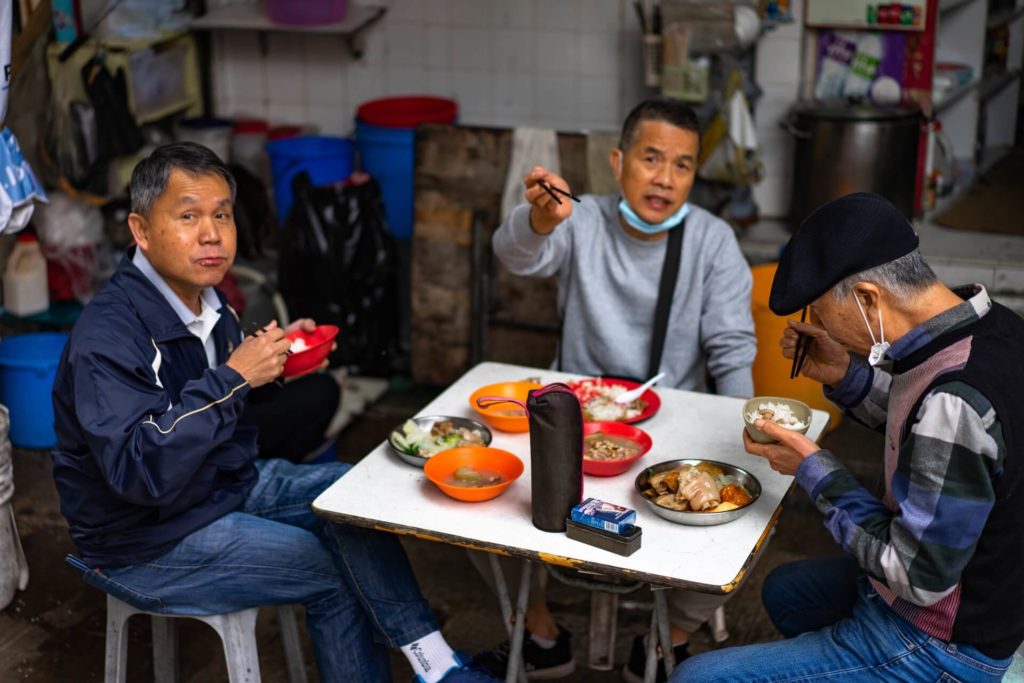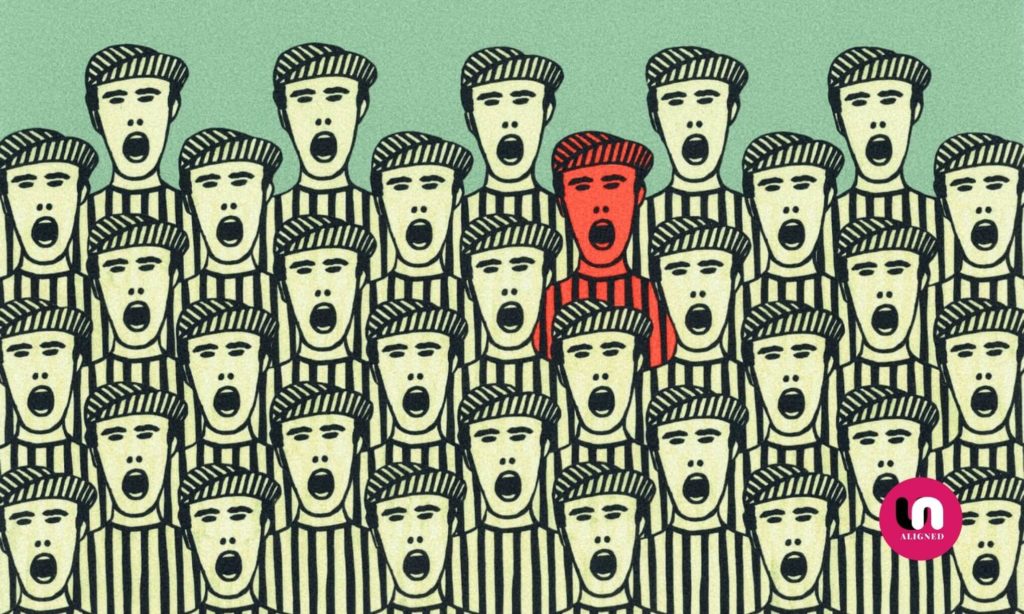In Chinese, foreigners are often referred to as ‘laowai’, a term that carries different meanings depending on context and perception. In this article, we shed light on the social and cultural aspects of language use.
A single person may often be categorized and called in many different ways. I, for instance, may be categorized as ‘Iranian’, ‘Middle Eastern’, ‘brown’, etc. These separations and categorisations typically occur due to cultural differences between two or more groups. A common separation in China is that of a Chinese person and a foreigner.
While there are several ways to refer to a foreign person in Chinese, such as ‘waiguoren’ (foreign country person), ‘waiguoyouren’ (foreign country friend person), etc., in this short article we will discuss the word ‘laowai’, its semantic colour, usage and perception.
The literal meaning of ‘laowai’
The word ‘laowai’ consists of the two parts ‘lao’ and ‘wai’. ‘Lao’ literally translates to ‘old’, but is often put in the beginning of someone’s name to show respect or friendship (common amongst old friends, indicating that they go way back).
The Chinese character ‘wai’ can be translated to “outside” or ‘foreign’. Hence, the word is meant to describe someone who comes from outside (from a different country), and sounds somewhat intimate (on a friendship level).
This is how the word has been used for many years, however there has been a massive shift in the perception and usage of the word and this change is worth discussing.
An interesting study on the word ‘laowai’
In 2010, Wei Liu and Wenhua Zhang from Shandong University published a paper on the usage and semantic colour of the word ‘laowai’. In the first part of the paper, a total of 30 participants were asked to specify the defining feature of a ‘laowai’.
77% of the participants answered ‘different appearance’, followed by 20% ‘different nationality’. ‘Difference in language’ and ‘difference in culture’ were almost fully ignored.
The second part of the research asked participants to evaluate the semantic colour of the word ‘laowai’ from the choices ‘positive’, ‘neutral’, and ‘negative’. Amongst the three groups of Chinese participants and one group of foreigner participants, around seventy percent of people evaluated the word as neutral, close to twenty percent evaluated it as negative, and about ten percent evaluated the word as positive.
What is the perception and usage of the word ‘laowai’?
As discussed earlier, the word ‘laowai’ can carry all three semantic colours (‘positive’, ‘neutral’, and ‘negative’). The reason for the many interpretations can be traced to the usage of the prefix ‘lao’ which depending on the context can carry the following meanings: respect, intimacy, funny or pitiful and terrible.

Context also plays an important role in the perception of the word. Here we shall look at a few examples to illustrate the usage of the word ‘laowai’. While I can think of many sentences I’ve heard the word ‘laowai’ in myself, one’s memory is prone to failures and misremembering. Hence to provide firsthand recorded evidence why the perception of this word is perceived in so many different ways, I shall give examples extracted from the Center for Chinese Linguistics PKU corpus (CCL corpus).
‘Neutral’ usage of the word
In the following example, there are no indications of ‘negative’ usage such as accompanying words or a ‘negative’ meaning to the sentence as a whole.
"...Later foreigners who came to China tipped the Chinese waiters out of Western habits..."
"……后来来中国的老外出于西方习惯给中方服务员以小费……"
‘Positive’ usage of the word
In this example we see the usage of the measure word ‘wei’ which in contrast to ‘ge’ indicates respect and elevates the social status of the person.
"Chinese people are so smart and humane." said a foreigner.
……“中国人就是这么聪明和富有人情味。”一位老外这样说。
‘Negative’ usage of the word
Due to the usage of the measure word ‘ge’ rather than ‘wei’ and the surrounding context, specifically in “if I, a foreigner, attended the meeting” (the fact that they are a foreigner automatically disqualifies them.)
On the evening of the first meeting, the Dongfang team called Zhang Mingji and said that if I, a foreigner, attended the meeting, they would refuse to negotiate.
……第一次会议的前夜,东方队打电话给章明基,说如果我,一个老外,参加会议,他们就拒绝谈判。
The example sentences found in CCL corpus primarily include ‘positive’ and ‘neutral’ usages of the word laowai. This is because the corpus is a collection of written language rather than spoken language and this is to be expected. Time may also be a factor as the semantic colour of the word may have changed over time.
The word ‘laowai’ from the eyes of a foreigner
In 2016, David Kolosov, who is a known foreign personality in Chinese TV, took part in episode one of the first season of the TV show Chinese Poetry Congress (中国诗词大会). During the introduction phase, we can see the following dialogue play out between David Kolosov and the host of the show, Dong Qing. A link to the video is provided in the references section.
-David: Are there any other lao…eh… ‘waiguoyouren’ in this studio?
-Dong Qing: You can say ‘laowai’. Are there any other ‘laowais’?
-大卫:这个现场有没有其他老......呃......外国友人
-董卿:可以说老外,还有没有老外?
We can see that David Kolosov initially wanted to use the word ‘laowai’, but interrupted himself halfway through to opt for a different word. Dong Qing tells him that it is in fact okay to use this word and asks the question using the word ‘laowai’. But it has to be noted that there may be other reasons for David Kolosov’s reaction to his own usage of the word ‘laowai’ such as maintaining formality.
Conclusion
The word ‘laowai’ in of itself is extremely fascinating and can provide a massive insight into the social aspects of language use, specifically in the way people categorize and refer to other people. However, the discussion of the semantic colour of the word ‘laowai’ raises another interesting social question: Who decides the semantic colour of a word?
Is it the native speaker, whose evaluations when in-line with the majority of other native speakers defines language usage, or is the person whom the term refers to, even though they may not be sensitive to the same language usage as the native speaker?
- Center for Chinese Linguistics PKU corpus (CCL corpus)
- Chinese Poetry Congress, season 1 episode 1
- Liu Wei, Zhang Wenhua, A Study on the Semantic Colors of Addressing “Foreigners” [J], Journal of Hubei Second Normal University, 2010, 27(01): 25-28.Hubei
- Read this article in Italian (Leggi questo articolo in italiano) →




















